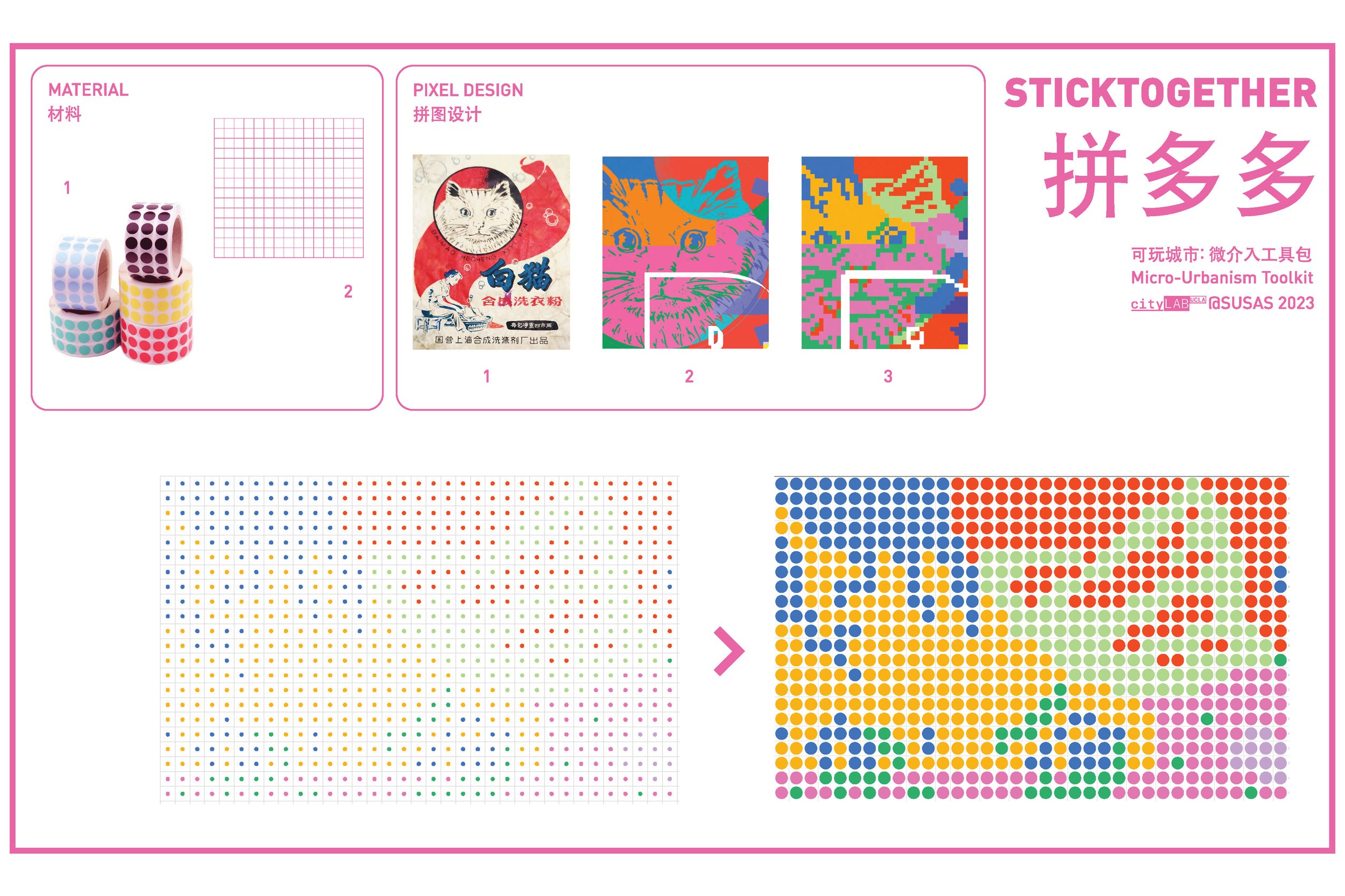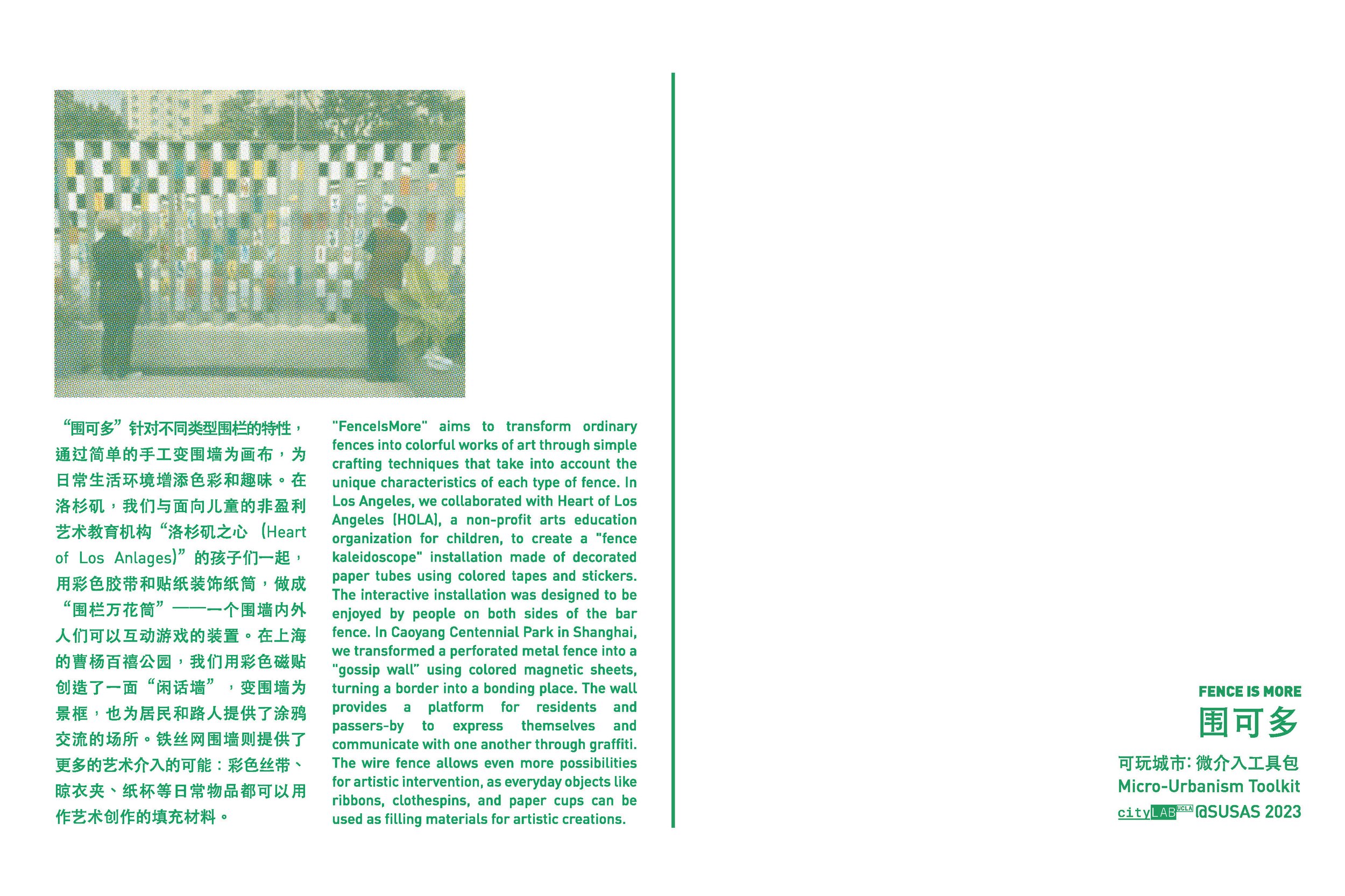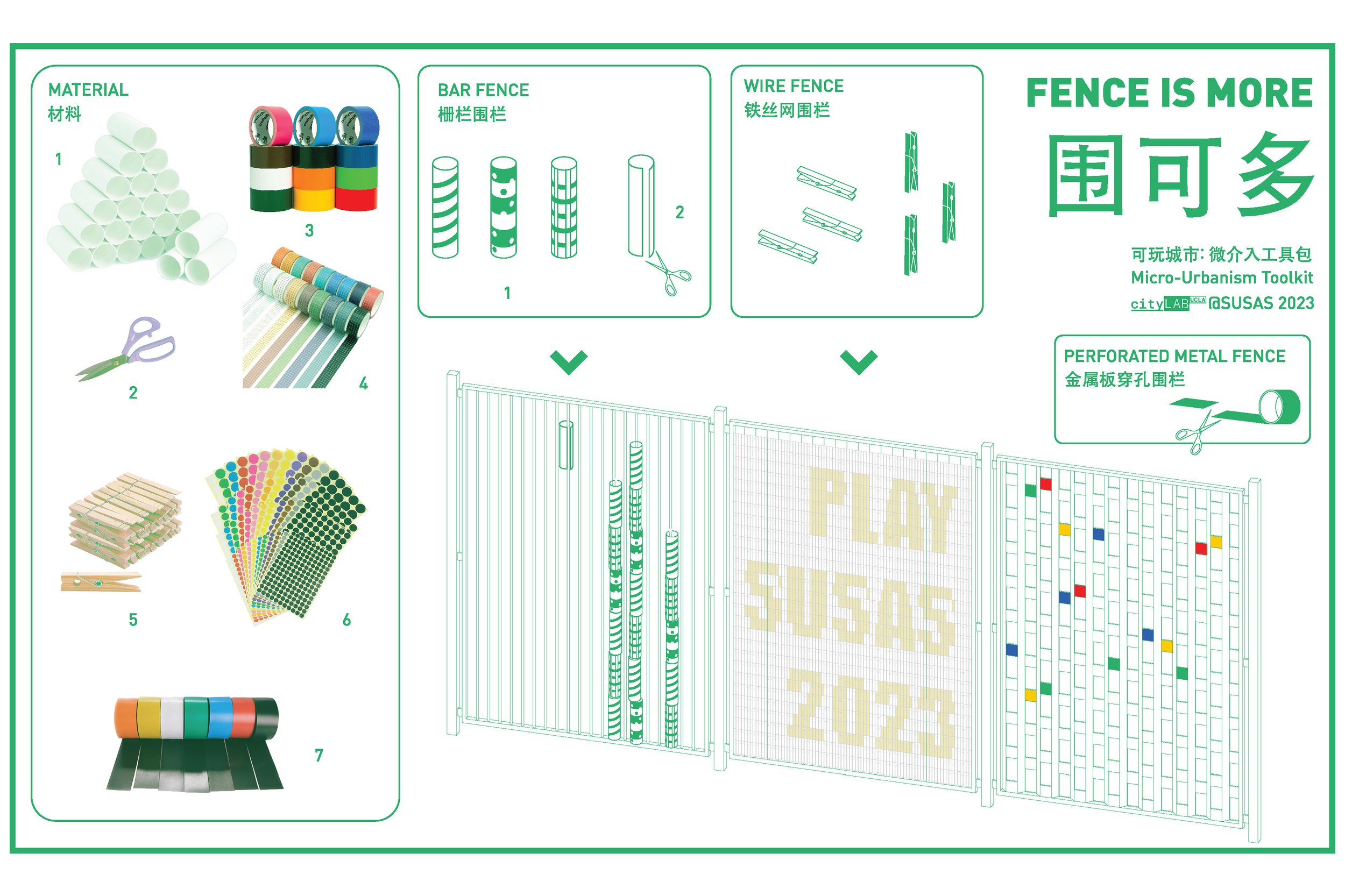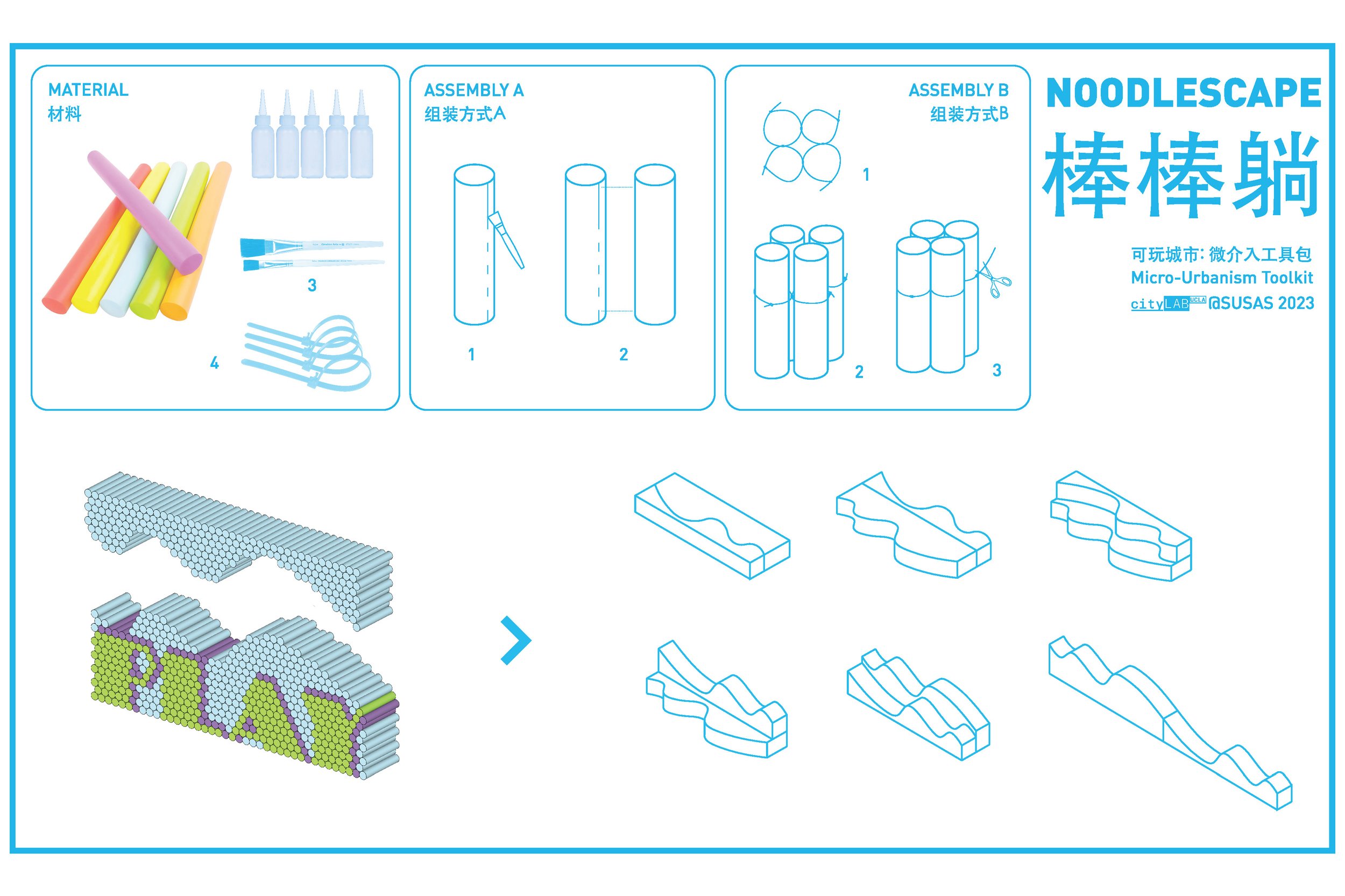Micro-Urbanism Toolkit: Reclaiming the Commons Through Play


Photos courtesy of Fangfang Tian
Year: 2023
CityLAB's interactive installation, "Micro-Urbanism Toolkit: Reclaiming the Commons through Play," debuted at the 2023 Shanghai Urban Space Art Season (SUSAS). The concept of "Micro-Urbanism" has been developed through years of community-based research and design practices at cityLAB. This concept explores how small interventions in the city—however informal, temporary, or minor in scale—can catalyze community engagement, shared interests, and civic improvement, and serve as a prototype for further urban transformation. By building a public sphere that advances spatial justice and contributes to long-term change, small endeavors can have significant impacts.
The rationale for “micro-urbanism” is based on several factors. Small-scale interventions allow for testing new ideas prior to larger-scale implementation, without the danger of permanent failure; temporary activities are more flexible and accessible, building tolerance for innovative design; informality generates a more dynamic, adaptive, and playful urban vitality; incremental transformations accumulate into broad and enduring effects and establish new, durable relationships. As Professor Dana Cuff of UCLA states in her recent book Architectures of Spatial Justice, "Leveraging design on behalf of social justice inherently means starting small, in ways that are likely to seem insignificant."
Based on these principles, a "playable city" toolkit has been developed to foster community engagement and placemaking. This toolkit offers micro-urban intervention strategies to mobilize everyday resources and citizen power to create playful, replicable, and highly engaged public spaces that all age groups can enjoy. By participating in the planning, organization, and realization of a playable city, audiences can learn how to understand community needs, utilize existing resources, express appeals and visions, share collective memories, increase community awareness, and make their “right to the city” visible to the public at large.
Credit
Dr. Yang Yang, Dr. Dana Cuff, Nu Guo, Zheng Tan, Yan Wang, Kay Wright, Jia Xu, Kehao Chen, Yinuo Deng









